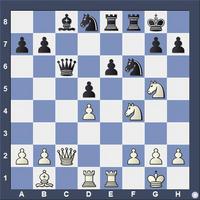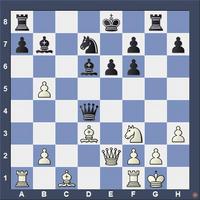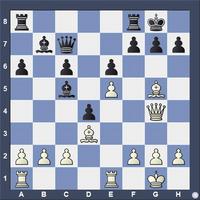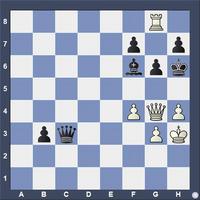Games
/Entertainment
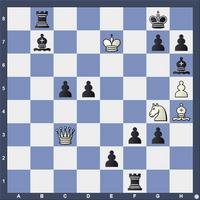
White to Play
This is a historic position, but I can’t find the game score. I will give a book prize to any reader that can find it.
View solution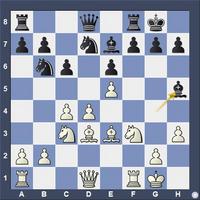
White to Play
This position came up in a 5-minute game I recently played. I had an obvious advantage here. Since the clock was ticking away, I didn’t have much time to think and played 1.Qe1 and went on to win. However, there was a longer line that won more quickly, but you have to take the time to see how it plays out. You have time here. See if you can ...
View solution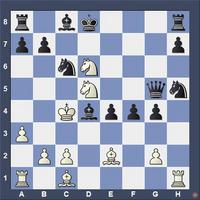
Black to Play
From one of those wild King’s Gambits from the 19th century. This time, Black bites back. A great mating attack by Falkbeer in 1853.
View solution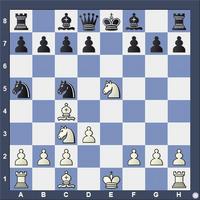
White to Play
Queen sacrifices are always entertaining to chess players. This game, Potter v. Anonymous, London, 1870, is unique because Mr. Potter sacrificed his queen before the game started! Queen odds! His opponent may very well have been a beginner, and, at move7, our odds giver announced mate! Can you do the same? The game began: Potter - Anonymous ...
View solution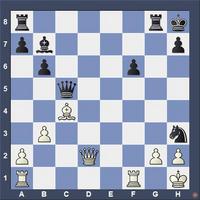
Black to Play
From a 100+ year old game between two anonymous players in England. Still, a lovely finish.
View solution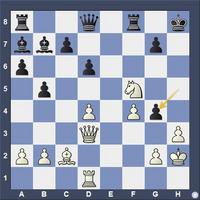
White to Play
This is from a 5-minute game I recently played. I had about 20 seconds to make my move here, and there are some bad choices here.
View solution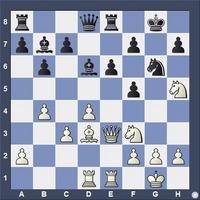
White to Play
A very important lesson on why you should not have weak dark squares.
View solution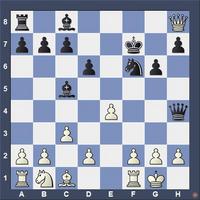
Black to Play
Some of you more experience solvers will realize that the white queen has just taken a rook on h8 leaving a bishop that can’t move because of the loss of yet another rook; however, if you don’t know this theme, then you will learn an important to attacking concept.
View solution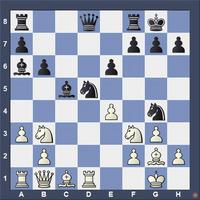
Black to Play
This game finish is a feast of minor piece play.
View solution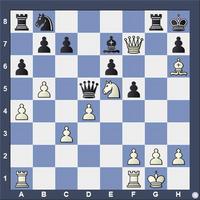
White to Play
An easy one for those of you feeling some post-holiday fatigue.
View solution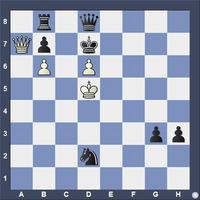
White to Play
From H.R. Agnel’s 19th century classic, Chess for Winter Evenings. It’s a puzzle from one of his tales. It’s a mate in 5, but pretty direct.
View solution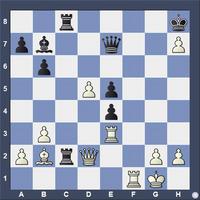
White to Play
From one of the most famous finishes in the 19th century.
View solution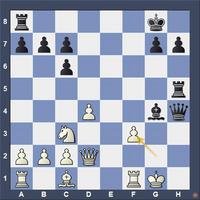
Black to Play
This position arose in a 5-minute game I was playing online. My intuition told me a mate had to be there, but I will be honest with you—I did not see my last move until I arrived at that move.
View solution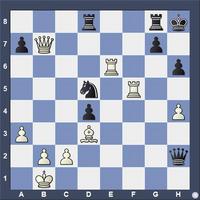
White to Play
If you remember Rule Number One, this one’s easy.
View solution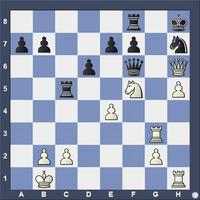
White to Play
I skipped side variations that led to heavy material loss. It’s an unusual mating attack. Here’s a weird clue: the knight is the piece that mates.
View solution
